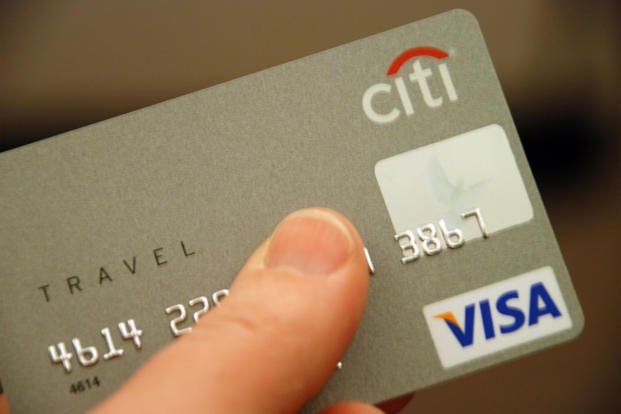Getting ready to PCS or go on official military travel? You might be required to use the Government Travel Card, known as the GTC.
The Navy Army, Air Force, and Marine Corps each have their own rules for getting and using the card, so when in doubt check with service officials. The card is meant to eliminate or limit travel advances and replace them with the card, which is then, in theory, paid-off through the official travel reimbursement process before the bill becomes due..
The government travel credit card program has existed since the mid-90s, and has gradually grown to be the required form of payment for almost all official travel. As a result, more service members are being issued government travel credit cards.
There are quite a few good things and quite a few bad things about the government travel cards.
The Good Things About the Government Travel Card
Service Members Don't Have To Use Their Own Money
The government travel credit card program means that military members are no longer using their personal funds or credit cards for government travel. This can be a significant hardship, especially for larger expenses or times when repayment is delayed.
Claims Money Goes Right To The Card
With other programs, there is the potential for travel claims money to become intermingled with the service members personal funds. With the government travel credit card program, the service member can direct that travel claim reimbursement be paid directly to the card issuer.
The Government Gets a Rebate
Much like the rewards credit cards that you may have, there is a rewards aspect to the government travel credit card. Each agency or department receives a rebate based upon the total amount of travel expenses that are charged to the government card.
The Bad Things About the Government Travel Card
There Are a lot of Rules
A service member using a government travel credit card for official travel has the obligation to understand all the rules for how it can and can not be used. There are a lot. In addition, each individual trip may have its own specific authorizations. For example, you may be authorized a rental car on one trip but not on the next trip.
Once you go to enter the travel claim into the Defense Travel System (DTS), you have to know how to code each item properly. It can be overwhelming for those who are new to the system or who don't travel frequently.
Service Members Are Responsible
Military members are responsible for paying their government travel credit card bills promptly, regardless of whether they have been reimbursed by the military. This can create stress and financial hardships. Outstanding government travel credit card bills can result in a negative reporting on the service member's civilian credit report, and the Department of Defense may "salary offset" a portion of the service member's salary to pay the government travel credit card bill. This can happen even when the service member has filed a legitimate travel claim in an accurate and timely manner. (see below.)
The Claims System Isn't Perfect
Anyone who has ever used the DTS to file a travel claim knows that it can be difficult. This is a problem because of the issue above. When DTS is hard, it is that much harder for service members to file their claims efficiently.
It's Not Set Up for Operational Situations
There are no provisions in the government travel card system for things that can delay billing and repayment. This might include submarine service, deployments, time in the field. Because the government travel credit card is tied only to the service member, there is no provision for a spouse, friend, or co-worker to make payments or handle problems.
Service members may be placed in "mission critical" status to be allowed additional repayment time, but this requires that they be able to communicate with their Component Program Manager, relay the necessary information, and that their Component Program Manager is in a situation where they can make these changes. It's an imperfect system.
The same problems occur with PCS moves. As the service member changes commands and addresses, information can be lost or changed incorrectly. There is supposed to be a provision to extend the repayment time for PCS moves, but this does not always happen. The problem is worse with extended PCS moves that include multiple intermediate schools or other activities.
It Gives Credit To Those Who Aren't Qualified
The application process for a government travel credit card is less stringent than for a personal credit card. As a result, the government can be putting credit into the hands of service members who may not be qualified to obtain credit on their own. There are two levels of the government travel credit card, standard and restricted, based upon the applicant's credit-worthiness.
Misuse Can Result in Punishment
Intentional or accidental, misuse of the government travel credit card system can result in administrative or disciplinary action. Ultimately, misuse can result in separation from the military and large debts to be repaid.
It Gets Cancelled at Inconvenient Times
Service members who don't use their government travel credit card frequently may discover that their account has been deactivated. They usually discover this when they are being told to use it for government travel. This puts the service member in a bind for a couple of reasons.
First, they may have their claim denied if they don't use the government travel credit card. Second, they may not have the personal funds or credit to pay out-of-pocket. This can be a large problem if the service member is stranded away from home or the unit.
Keep Up-to-Date for Your Next PCS
Get the inside information from those who know. Get PCS help and all the news and benefits information you need delivered straight to your inbox. Sign up for a free membership today.









